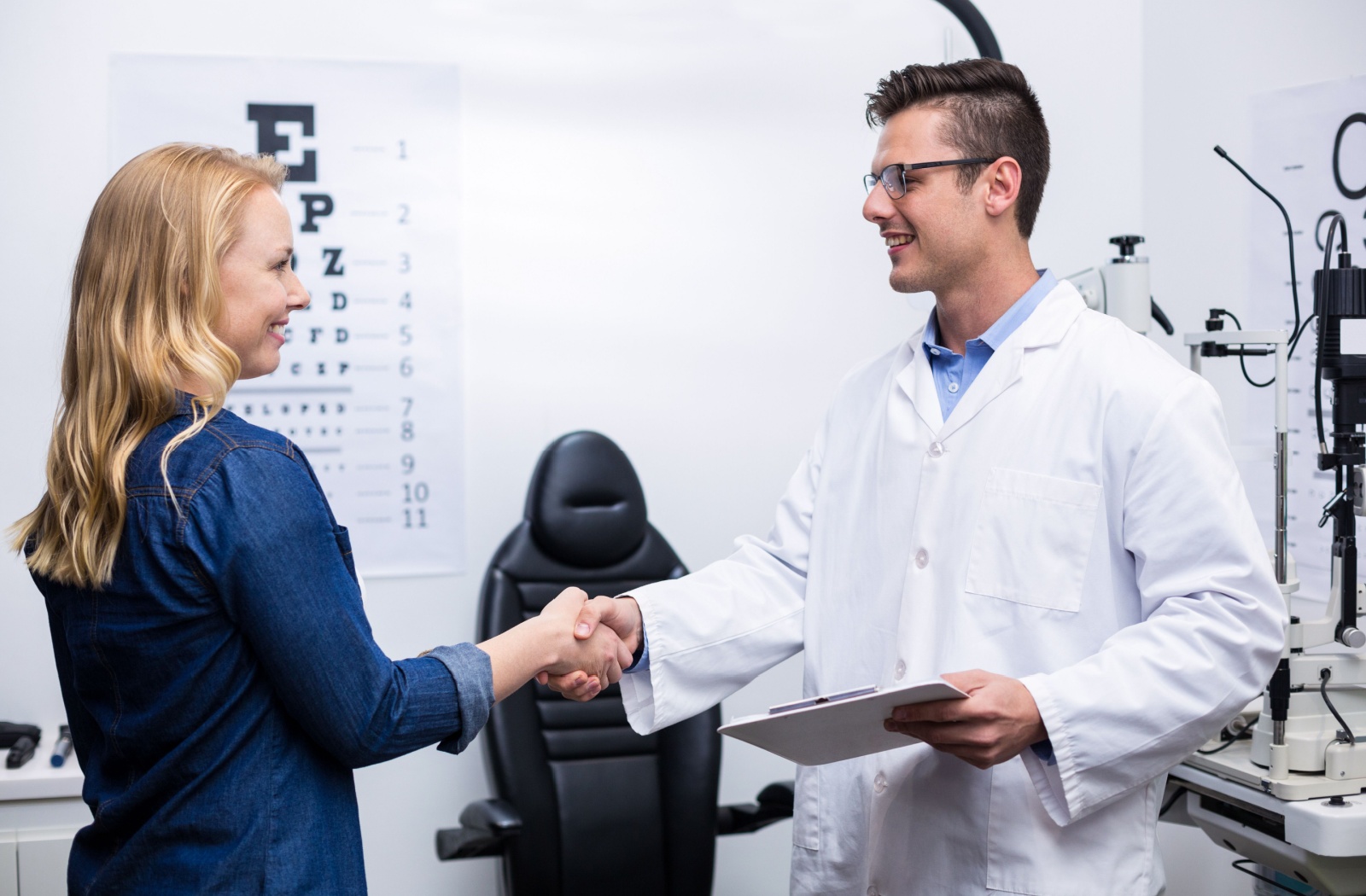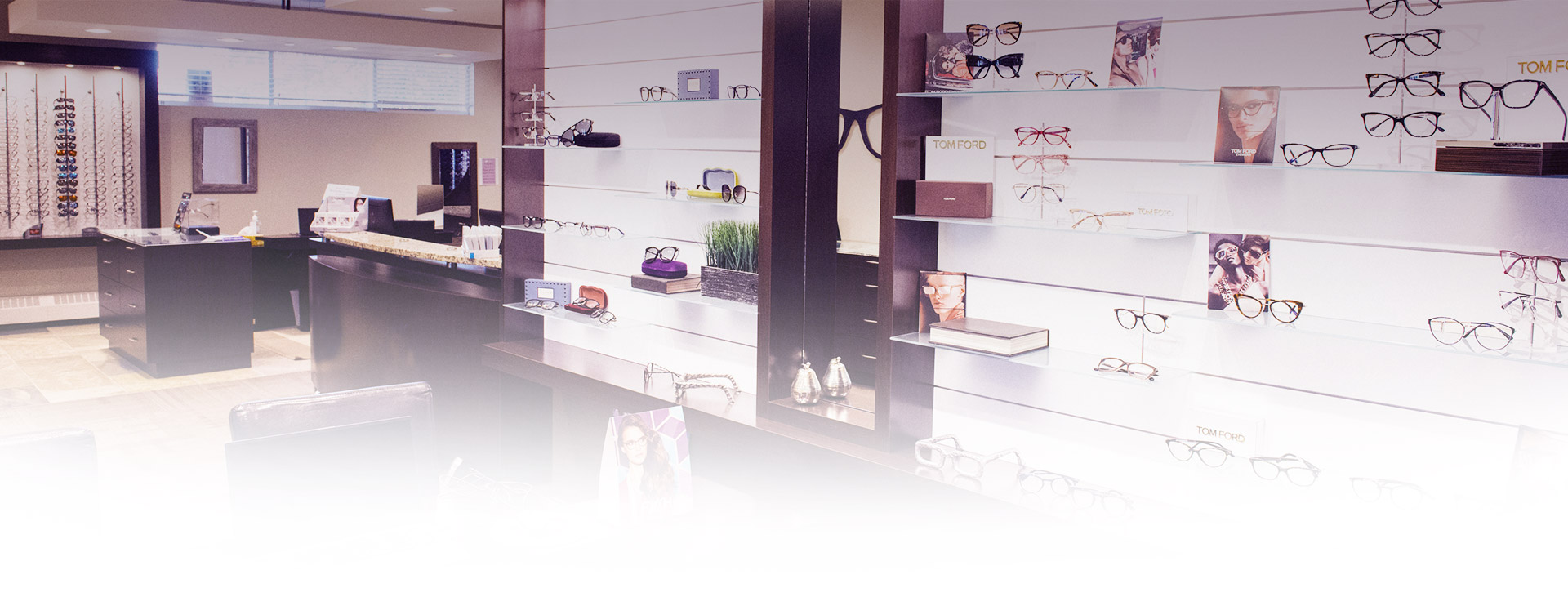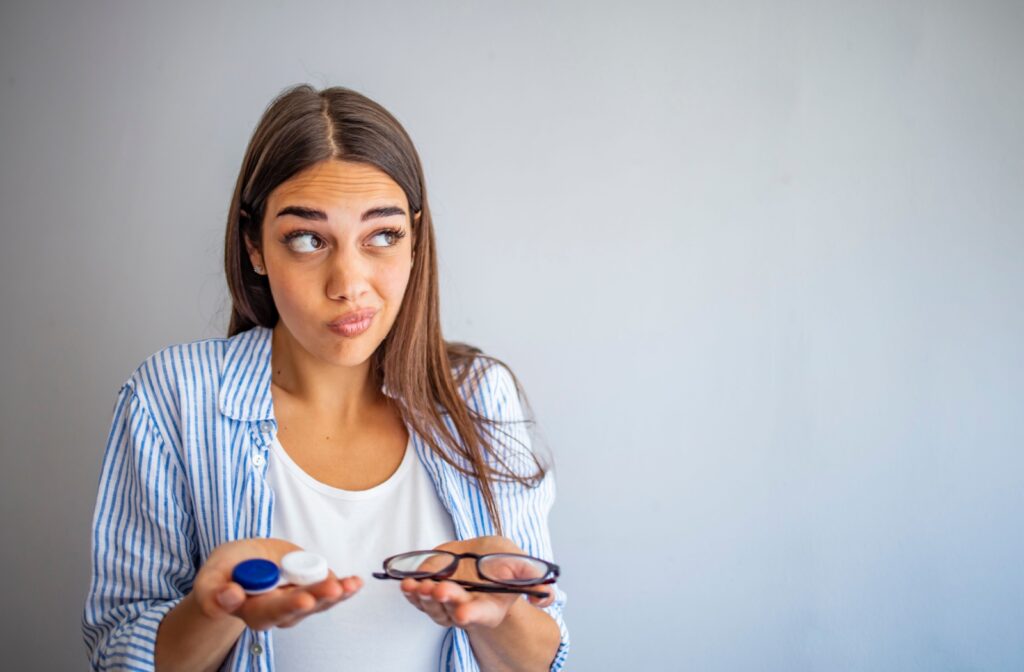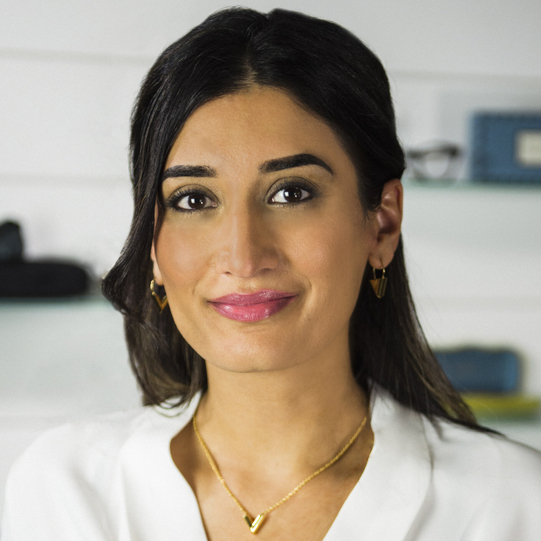Making the move from glasses to contact lenses can feel like a leap into the unknown—especially if you’ve never worn contact lenses before. If you’re considering making this change, knowing that your prescription is not universal is important.
Because contact lenses and eyeglasses sit at different distances from the eye, the prescription needed for clear vision isn’t interchangeable. So, if you’re considering changing to contact lenses, you’ll need to visit your optometrist for an up-to-date contact lens prescription; you can’t use your eyeglass prescription for contact lenses.
The Difference Between Glasses & Contact Lenses
When you have a natural refractive error, you deal with blurry vision in your day-to-day life. This blurry vision can be extremely frustrating, whether it’s difficulty seeing at a distance due to myopia or a problem with your nearby focus due to hyperopia. Fortunately, a pair of eyeglasses or contact lenses can help.
Glasses work by refocusing light onto the retina in the back of the eye. They’re designed to sit at a set distance away from the eye so that the curvature of the lens can properly focus this light.
Meanwhile, contacts sit directly on the eye and achieve the same result—but in a much closer approach. Though they work similarly, there is a noticeable difference: the lenses’ shape can vary due to the distance from your eye. Because of this, a prescription isn’t universal. You’ll need a specific prescription for both glasses and contacts to gain clear vision.
Is It Possible to Convert Glasses Prescriptions to Contact Lenses?
There is no sure-fire way to convert a regular eyeglasses prescription to a pair of contact lenses. Since contacts sit directly on the eye, they alter light at a different angle than a pair of eyeglasses. This means they require precise measurements and fitting to avoid causing further blurry vision.
Also, remember that contact lenses directly contact your eye’s surface. This means that it’s about more than just the measurement needed. You’ll need a pair of contact lenses that avoid causing discomfort or damage to your eye. This prescription level requires a specific assessment from a trained eyecare professional to find you the right pair of contacts.
How Is a Contact Lens Prescription Different?
There are critical factors at play when finding your contact lens prescription:
- The prescription power difference: Contact lenses are often stronger than glasses since they sit closer to the eye.
- The shape of the lens: Eyeglass lenses are rigid and designed to correct vision at a specific distance from the eye. Meanwhile, contact lenses need to match the curvature of your eye for proper fit. The base curve specifies this.
- How the contact lens fits: The lens has to sit in the correct position on the eye and accommodate the eye’s natural movements.
Because of this, you can’t simply transfer over an eyeglasses prescription; instead, you’ll need to visit your optometrist.
What to Expect from a Contact Lens Fitting & Exam
If you’re considering switching to contact lenses, you may wonder where to begin. It starts with a regular contact lens fitting and exam with your optometrist. This is a special appointment where your optometrist can determine how to get you the right pair of lenses.
When you visit our team at Visionary Eye Centre for a contact lens fitting, here’s what you can expect:
The Exam
To begin, we’ll perform an eye exam similar to any other eye exam you have. We’ll ask about your medical history to determine if you may have another condition affecting your eyesight. Then, we’ll look for conditions that can affect the success of your future contacts, like:
- Astigmatism
- Dry eye
- Eye allergies
Then, we’ll determine the prescription you need through a series of tests.
The Fitting
During the fitting, our team will measure your eye surface and curvature to help determine the correct size and type of contact lens that works best for your eyes. We’ll also:
- Teach you how to safely insert and remove the lenses
- Monitor how the lenses move on your eye
- Determine the exact fit you need
- Whether or not your eyes are getting enough oxygen
This lets us select the right lens to avoid unwanted side effects like irritation or discomfort.
The Trail Period
Once we’re done, we’ll have a proper understanding of your unique needs. With your prescription, eye curvature, and shape in mind, we can determine an appropriate pair of contact lenses for you.
We’ll give you a trial pair to begin with. You can try them out, see if they’re working properly, and determine if they’re comfortable. If so, you can order a full supply; if not, we’ll work together to find the right pair of contacts.

Update Your Prescription Today
If you’re considering getting contact lenses, come see our team at Visionary Eye Centre. We can perform a contact lens fitting and exam to help you find the right pair of contacts. Request an appointment with our team today, and take the first step towards clear and comfortable vision!



